What was the Illicit Trade Summer School 2024 like? An impression in words and photos

The Summer School on Illicit Trade 2024 began on July 8th, bringing together experts, scholars, and students in the Polish capital, Warsaw. Organized by the Global Initiative against Transnational Organized Crime and the Illicit Trade Group of the Rudolf Agricola School for Sustainable Development, the event aimed to tackle the complex issues surrounding illicit trade.
Illicit trade has become a critical issue in today's global economy, impacting nations and communities on multiple levels.
Firstly, it undermines legitimate businesses and stifles economic growth by creating unfair competition.
Secondly, it fuels organized crime and terrorism, as illegal profits often fund these activities, posing significant security threats.
Thirdly, illicit trade in goods like counterfeit pharmaceuticals and unsafe food products endangers public health.
Moreover, human trafficking and smuggling violate human rights and exploit vulnerable populations. Illicit trade also erodes government revenues through tax evasion, affecting public services. Addressing this issue requires international cooperation, robust legal frameworks, and advanced technologies to detect and combat illicit activities effectively. As globalization expands, the importance of tackling illicit trade to ensure economic stability, public safety, and social justice cannot be overstated.
Opening Day Highlights
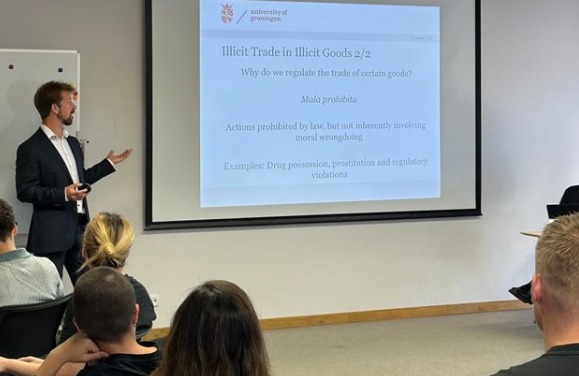
The inaugural lecture of this year's Summer School was delivered by Dr. Francesco Giumelli from the University of Groningen, who discussed the trade-offs between free trade and regulation, which set the stage for a series of lectures and discussions focused on various aspects of illicit trade. The keynote speech by Piotr Stryszowski from the Organisation for Economic Cooperation and Development (OECD) introduced students to the measurement of illicit trade and the role of the OECD in illicit trade reporting. Rounding off the morning sessions, John Collins, the Head of Academic Engagement at the Global Initiative against Transnational Organized Crime (GI-TOC), highlighted the work of GI-TOC in tackling organized crime and illicit trade through research and resilience funding. Diving into the skills required for investigating illicit trade, the afternoon sessions introduced students to the various search tools for OSINT analysis and how to navigate the web.
Goods Day
Day 2 featured discussions on the trade, trafficking, and smuggling of goods. Following the morning lecture by Francesco Giumelli, Zbigniew Lasocik, Director of the Human Trafficking Center in Warsaw, clarified the differences between human trafficking and human smuggling and Pawel Barabasz from the International Organization for Migration (IOM) followed with an introduction to human trafficking, presenting a case study on prevention efforts in Italy and highlighting the role of IOM Poland. The morning session concluded with Agnieszka Kisielewski discussing cases of cigarette smuggling and sanctions on goods.
Money Day
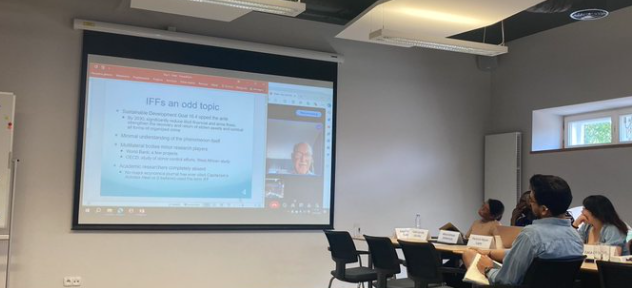
The Money Day focused on the financial aspects of illicit trade. Tim Wittig kicked off with a lecture on illicit finance concepts. Peter Reuter from the University of Maryland, participating online, examined the causes, consequences, and control of illicit financial flows, and Lucia Bird from the GI-TOC Observatory of Illicit Economies in West Africa provided insights into the interaction between illicit economies and conflict in West Africa. In the afternoon, Ash Leber from the Basel Institute on Governance introduced visualization techniques for analyzing illicit trade networks.
Field Trip Day
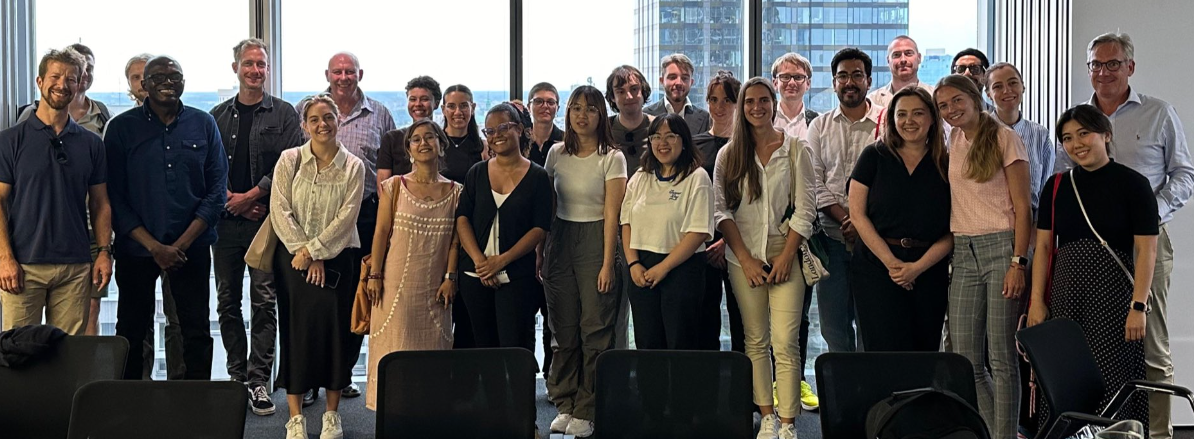
Day 4 saw participants embarking on a field trip to Frontex, the Polish Border Guards, and ING. These visits provided firsthand insights into how these institutions address illicit trade and organized crime. The visit to Frontex highlighted the different operations along the border of the EU, while the visit to the Polish Border Guard Security showcased Polish border operations, drug seizures, and the use of PNR data in security risk assessments. As a last stop of the day, students visited the ING hubs in Poland to learn about banks' roles in detecting and reporting suspicious transactions and ensuring compliance with know-your-customer regulations.
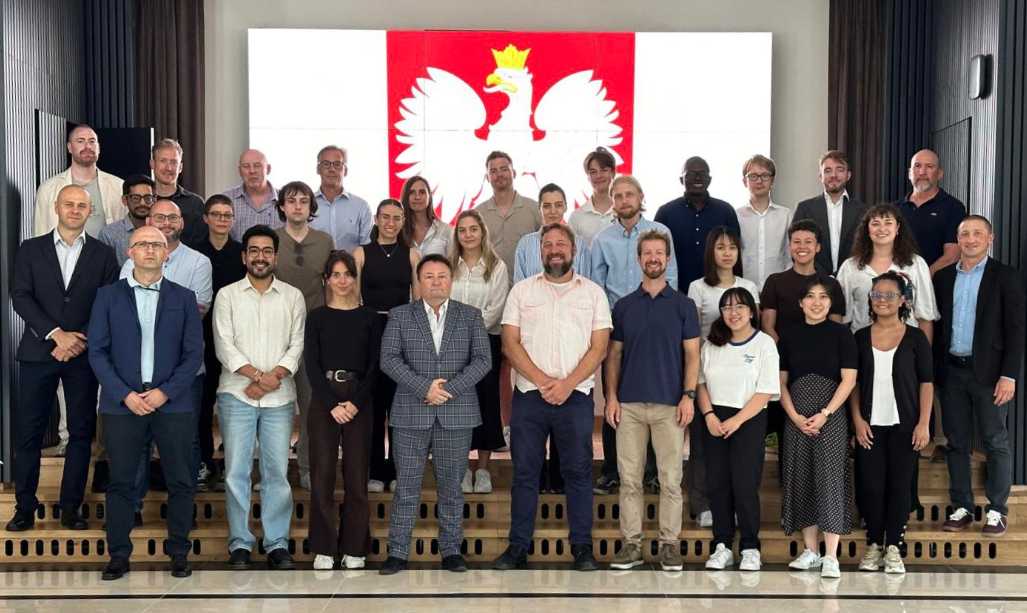
Final Day and Reflections

The final day of the Summer School focused on responses to illicit trade, particularly in drug policy.
In the first session, Francesco Giumelli brainstormed with students about the various causes of and responses to illicit trade. In the second session, John Collins established a historical overview of international drug policy responses and how they can be understood within the framework of macroeconomics. Following the historical approaches to drug policy, Kasia Malinowska gave a lecture on the importance of considering drug policy through a public health lens. Lastly, and on the case of West Africa, Lucia Bird gave an insight into how maritime routes of drugs are replacing each other.
In the afternoon, students presented their findings and recommendations in dynamic elevator speeches and their red team assignments on illicit financial structures.
The Summer School on Illicit Trade 2024 proved to be an invaluable experience for all involved. It facilitated a deeper understanding of illicit trade and developed a network of students and experts who discussed effective strategies to combat this global issue.
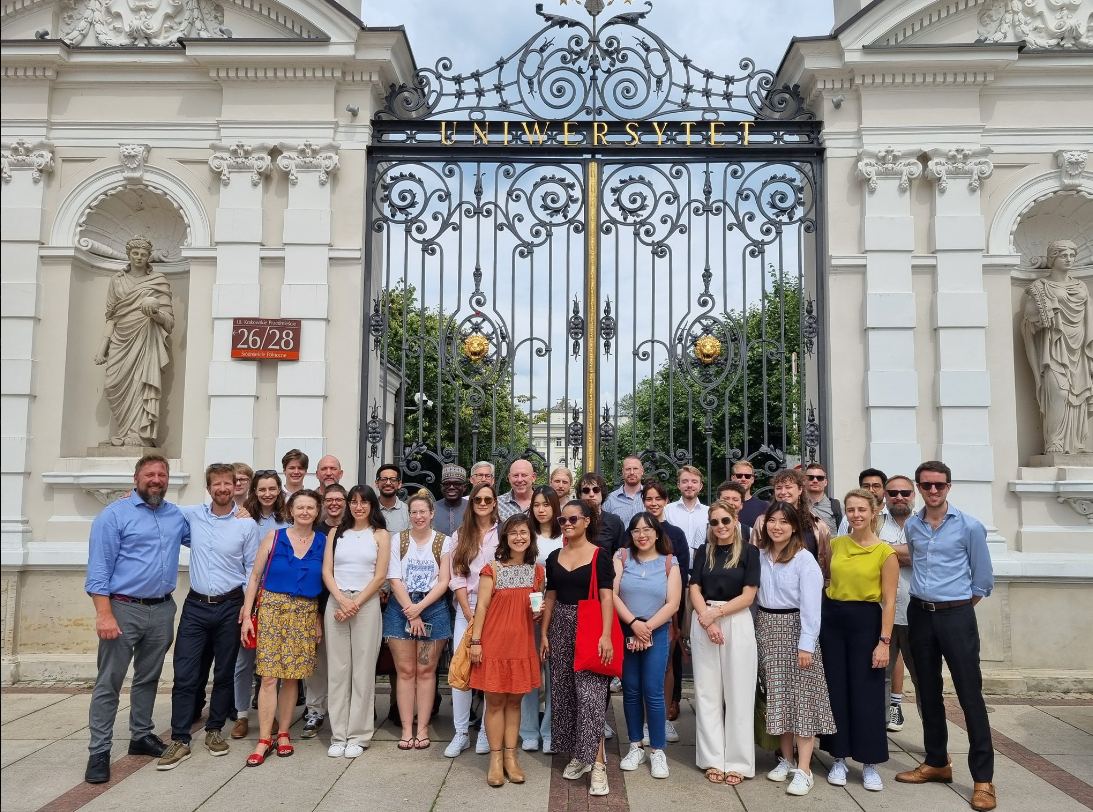
More news
-
15 September 2025
Successful visit to the UG by Rector of Institut Teknologi Bandung

